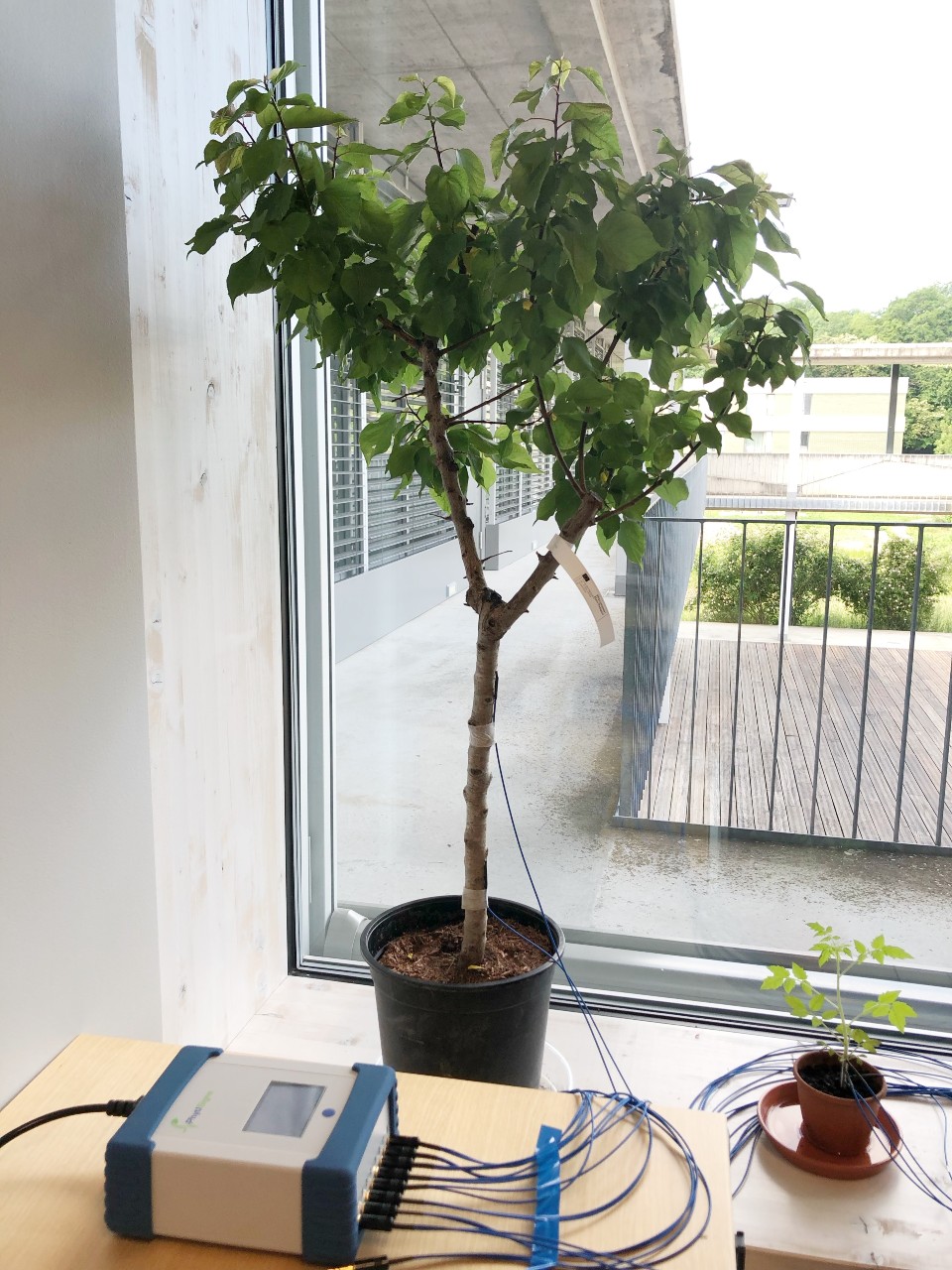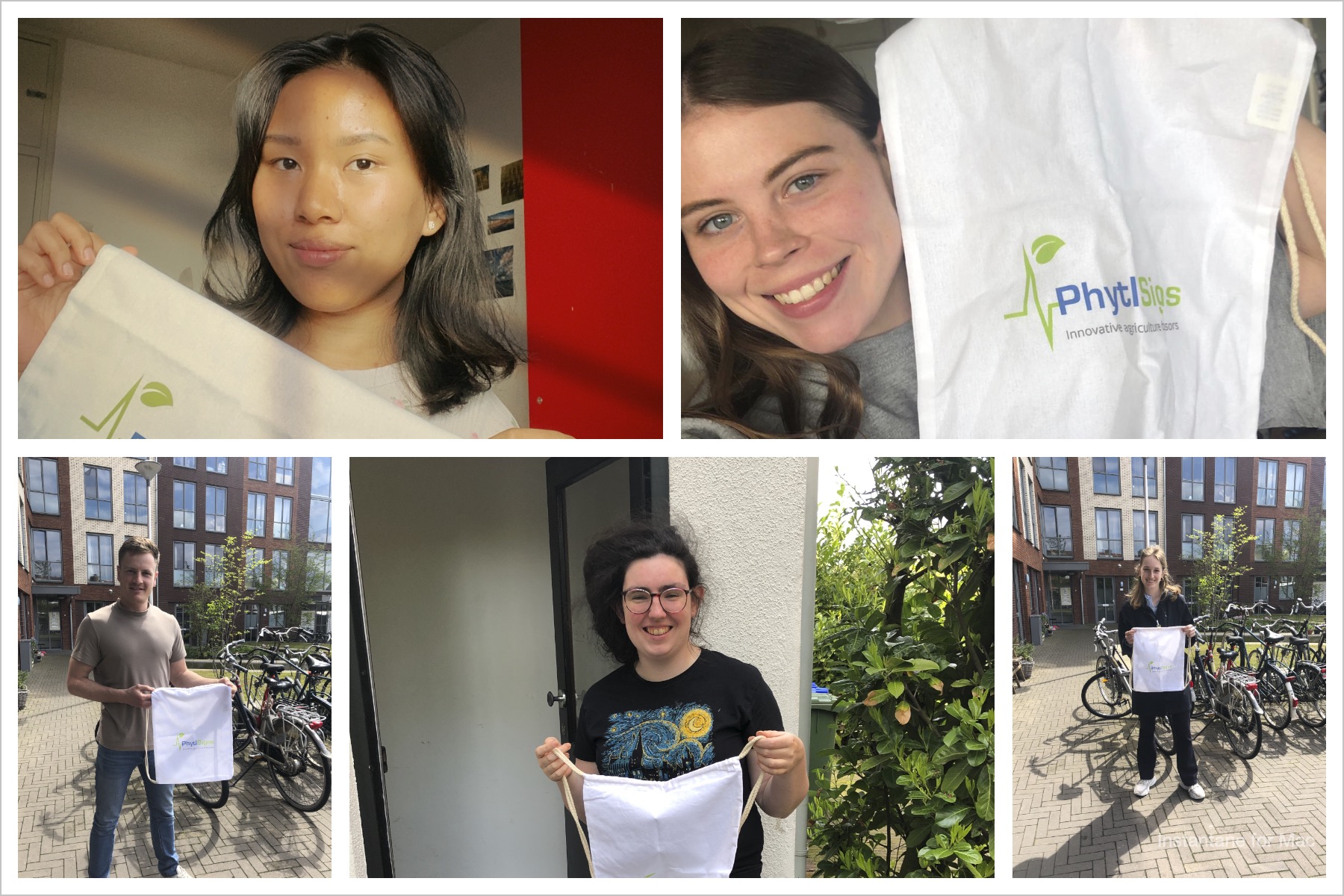
For some time now PhytlSigns has been trialled by plant researchers in Rex Cocroft’s laboratory at the University of Missouri-Columbia, as part of their research into plant perception of herbivore vibrations and resultant plant signalling. This summer PhytlSigns was thoroughly tested by a visiting student under the NSF REU (National Science Foundation Research Experiences for Undergraduates) scheme.
Annette Marin, an American BSC Computer Engineering final year student at Florida State University and the only female on the course, used PhytlSigns as part of her summer project with Rex’s team. For the second summer running she had been chosen by the NSF undergraduate program to be sponsored for one of their `Summer projects in Neuroscience’ programs. Annette’s project this summer was to compare the electrical signalling capturing abilities of PhytlSigns, specifically designed for plant use, with 2 other data acquisition devices. She looked specifically at electrical signals from Soya bean (Glycine max) plants.

She certainly found it exciting to have the opportunity to merge the world of computational engineering with the natural, more unpredictable world of plants, to aid the capture of these elusive yet important electrical signals. In fact, she felt it was the best, most enthralling project that she’s worked on to date, and commented that she had learned so much from Rex Cocroft’s team.
Thanks to her expertise and persistence we’ve seen how PhytlSigns compares with other experimental set ups. Annette appreciated the ease of use, portability and long term stability of the PhytlSigns device and her feedback has helped inform our ongoing product development.
What about the future? Annette thinks that the linking of Artificial Intelligence with Biology and Neuroscience is going to result in huge leaps in both biology and medicine, e.g. the replication of lost or damaged memories, and she hopes to be in the middle of these breakthroughs, continuing to blaze a trail for women in this male-dominated field.
All of us at Vivent would like to congratulate Annette on a great project outcome, thank her for her work and enthusiasm, and wish her well for her future.




